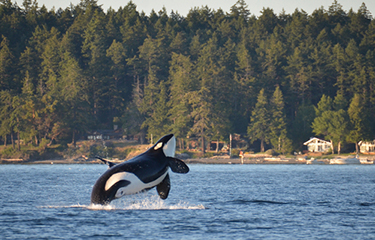Maine lobstermen see their plight reflected in Alaska salmon trollers' saga

Fresh off legal victories, lobstermen in the U.S. state of Maine and salmon trollers across the country in Alaska are finding kinship in a shared narrative.
In a letter sent to the Alaska Trollers Association, Maine Lobstermen’s Association President Kristan Porter said both organizations had fought similar battles against environmentalists who want to end commercial fishing over concern about the threat it poses to whales.
“The situation you are all in is very similar to the one we are in. Basically, it is the environmental groups trying to put hard working fisherman out of business, using whales as a vehicle to do it,” Porter said.
Maine lobstermen have been in a protracted legal battle over the gear they use after a NOAA Fisheries document claimed they threatened endangered North Atlantic right whales. Those claims, which the industry strenuously refuted, led to the fishery being decertified by the Marine Stewardship Council and red-listed by the Monterey Bay Aquarium Seafood Watch list.
“Without the lobster fishery here in Maine, the coastal communities would disappear, and our way of life would be gone,” Porter wrote in his letter. “That is why we couldn’t go down without a fight. We decided a few years ago that we would do whatever it took to save our fishery from being shut down by the NGOs and NMFS even going so far as suing the federal government.”
The Maine Lobstermen’s Association sued NOAA Fisheries over what it felt was faulty documentation supporting the right whale concerns, and this month the U.S. District Court of Appeals for the District of Columbia gave Maine lobstermen an “overwhelming victory,” vacating the 2021 biological opinion that used worst-cast scenarios to justify the stringent right whale protections under the Endangered Species Act.
In Southeast Alaska, salmon trollers have also faced a taxing legal battle.
In 2020, environmental and conservation nonprofit Wild Fish Conservancy sued NOAA Fisheries, arguing that commercial fishing was depleting killer whales’ primary prey – Chinook salmon. The group found flaws in the documentation supporting the salmon-fishing industry, and in 2022, a district judge found in WFC’s favor.
Last month, the district judge vacated the biological opinion supporting the commercial harvest, leading to the cancellation of the summer and winter seasons. Only a last-minute intervention by the U.S. Court of Appeals for the Ninth Circuit overturned the district judge’s decision, allowing the fishery to open on 1 July, though the legal battle will continue in the higher court.
For Porter, the lobster industry’s legal victory should encourage Alaska salmon trollers to continue their legal battle.
“This win did not come without some really dark days when we almost threw in the towel, but too much was at stake. We made some pretty bold decisions hoping the fishermen and the local communities would financially help us and they did,” Porter said. “Neither of us are out of the woods yet, but we have definitely turned the tide in our favor. Our future looks a lot brighter than it did just a few weeks ago.”
Conservation groups have vowed to continue to challenge the legality of both fisheries’ interactions with whales.
“The economic, ecological, and cultural cost of losing Southern Resident orcas and wild Chinook [salmon] is unfathomable,” WFC Executive Director Emma Helverson said. “It is unfortunate that the Ninth Circuit determined the short-term economic interests of Southeast Alaska commercial harvesters should be prioritized over the long-term interests of all current and future generations of First Nations, Tribal Nations, and communities throughout the Pacific Northwest who depend on these iconic species.”
Photo courtesy of Shutterstock / Monika Wieland Shields






Share